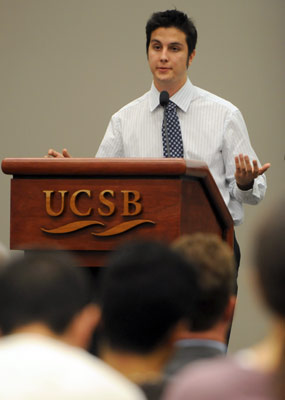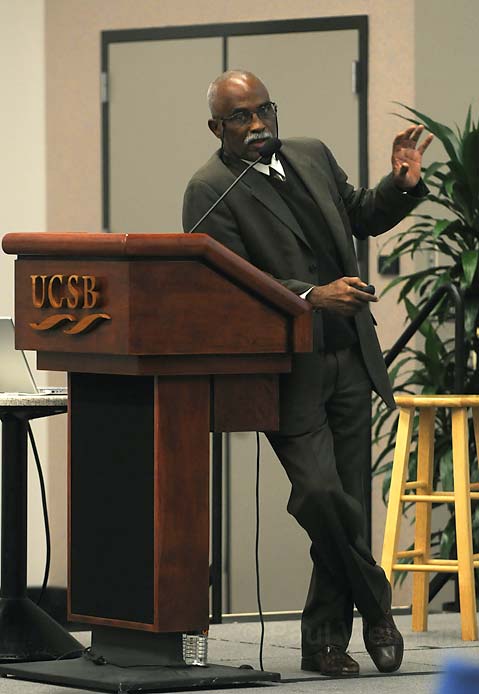UCSB Eyes Controversial ‘Tax’
Budget Shortfall Pits Administrators Against Students

Hard economic times have hit UCSB in the form of an estimated $12 million budget shortfall this year. Most departments are planning for budget cuts ranging from 4-8 percent, with several units also implementing cautionary hiring freezes considering layoffs. One proposal to increase revenue for the university has sparked opposition from student leaders: UCSB administrators want to “tax” programs that students pay for themselves. And they want to tax programs that generate income.
By way of trickle-down economics, the national recession and California’s budget woes have translated into $148 million fewer dollars for the University of California. But the bad news doesn’t stop there. Another $33 million is expected in mid-year cuts.
A campus budget committee made up of administrators, professors, and two students has been meeting to figure out how to respond to the dire financial situation. Called the Coordinating Committee on Budget Strategy, the group is proposing to increase the administrative “tax” the university levies on departments and programs that are not completely funded by the state and that receive grants or other outside sources of money.
Already, these programs pay one percent of their revenue to fund human resources, payroll, and accounting functions, as well as general maintenance of shared campus facilities. The committee has yet to determine the amount of the increased tax. And it remains to be seen what kind of administrative assessment will be levied on revenue-generating programs.
One target of the tax proposal has raised the ire of student leaders, including John Paul “J.P.” Primeau, UCSB’s student body president, who sits on the committee. More than 30 programs-ranging from the Associated Students Bike Shop, Arts & Lectures, Take Back the Night, the Educational Opportunity Program, and the Coastal Fund-stand to be taxed. That’s not fair, Primeau said, because students voted to pay for these programs themselves in response to past budget cuts. He said too much burden is being shifted to students, especially in light of registration fees being raised last year and possibly going up another 15 percent later this year. “The students are fed up with giving more money to the university,” Primeau said.

Primeau and his elected colleagues have an ally in Vice Chancellor for Student Affairs Michael Young in their battle against taxation. Young, a 19-year veteran of the university administration, has seen his share of budget battles. “I know the cuts are real. We get it. We’re not happy, but Student Affairs has to pay its fair share,” he said. However, he said he believes the proposed tax on student-supported programs is wrong. “In my mind, it’s like double taxing,” he said. “It’s not an appropriate source of funding.”
Among the programs that may be affected is the Daily Nexus student newspaper, which itself is struggling with an ongoing budgetary deficit. Editor in Chief David Ferry said the paper’s annual revenues run roughly $700,000, with about $48,000 of that coming from student fees. Ferry calculated a tax based on a 3 percent figure, which would mean a loss of $21,000 to Nexus coffers. It’s a reduction that would hurt, but because Ferry has been writing news stories about the university’s budget, he understands the need for drastic measures. “It will be painful for us, but some people on campus are likely to be laid off,” he said.
UCSB administrators say they want the pain to be distributed evenly, and that the latest shortfall is a continuation of a decade-long trend. Joel Michaelsen, chair of the Academic Senate, said the university has never fully recovered financially from the dot-com crash of 2000. Also, the non-state funded programs have not been paying their fair share of administrative overhead costs.
Looking at the bigger picture, Michaelsen laments that state legislators, influenced in part by a dysfunctional political climate in Sacramento, have been unwilling to invest in California’s future through funding for its public universities.
“We need to protect the core academic mission of this campus,” he said.



